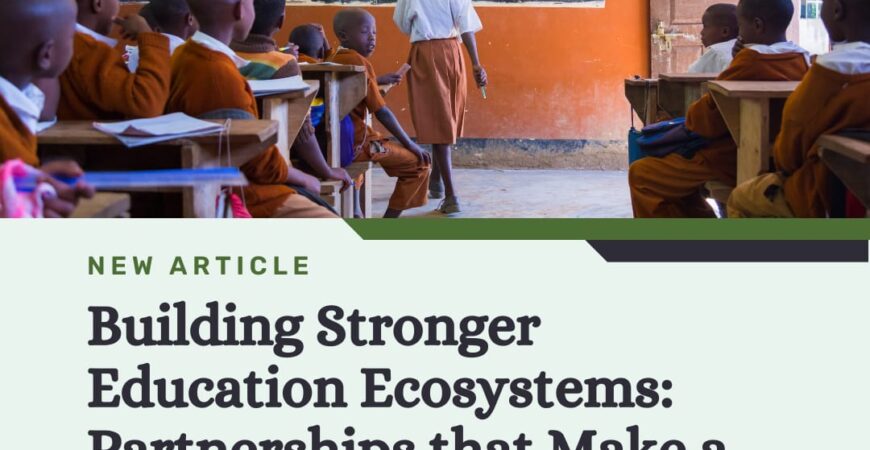Building Stronger Education Ecosystems: Partnerships that Make a Difference
In Sub-Saharan Africa, particularly Nigeria, the education sector continues to face significant challenges—from access to quality, as well as the preparedness of educators. To navigate these challenges, sustainable partnerships have become instrumental. At TEP Centre, we work alongside key stakeholders to implement scalable, data-driven, and community-rooted initiatives that improve learning outcomes across the communities in which we operate.
Driving Systemic Change through the PLANE Program
In partnership with a consortium of development organisations under the PLANE (Partnership for Learning for All in Nigerian Education) project, TEP Centre is tackling the disparity in education access across Northern Nigeria. This initiative, funded by the UK Foreign, Commonwealth & Development Office (FCDO), seeks to enhance education in states like Kano, Kaduna, and Jigawa, where affordability is a major concern. Over 50% of non-state schools in these regions charge under ₦10,000 annually, making quality education inaccessible to many. By developing cost-effective, scalable solutions, we are improving educational access for vulnerable populations.
Innovating Teacher Performance through Data-Driven Solutions
Teacher effectiveness remains a central challenge in achieving Sustainable Development Goal 4 (quality education). Through our work funded by the Bill & Melinda Gates Foundation, we are utilising formative assessments to address ineffective teaching practices. These data-driven tools help educators continuously measure student performance, allowing real-time adjustments to instruction. As a result, classrooms are becoming more dynamic, with evidence showing improved student engagement and higher learning outcomes.
Bridging Learning Gaps Post-Pandemic
The COVID-19 pandemic exacerbated existing inequalities in education, particularly in Northern Nigeria. In response, TEP Centre developed a low-tech, SMS-based solution that reached learners in 15 underserved communities, enabling them to continue their education remotely. This intervention resulted in a 33.5% increase in reading proficiency, a clear testament to the power of accessible, adaptable learning technologies. By integrating such innovations into education, we help reduce disruptions and sustain learning momentum, even in the most challenging circumstances.
A Holistic Approach to Education Reform
At TEP Centre, our approach to reforming the education ecosystem is holistic and collaborative. We engage governments, educators, and development partners to ensure that solutions are not only effective but also sustainable. Our focus on capacity building, data-driven insights, and tailored interventions has made a tangible impact in various regions across Nigeria and sub-saharan Africa.In all, we remain committed to our mission of strengthening the education ecosystem, and ensuring that children, regardless of their socioeconomic status, have the opportunity to learn and thrive.
For more information on our work, initiatives and partnerships, visit (https://www.tepcentre.com

